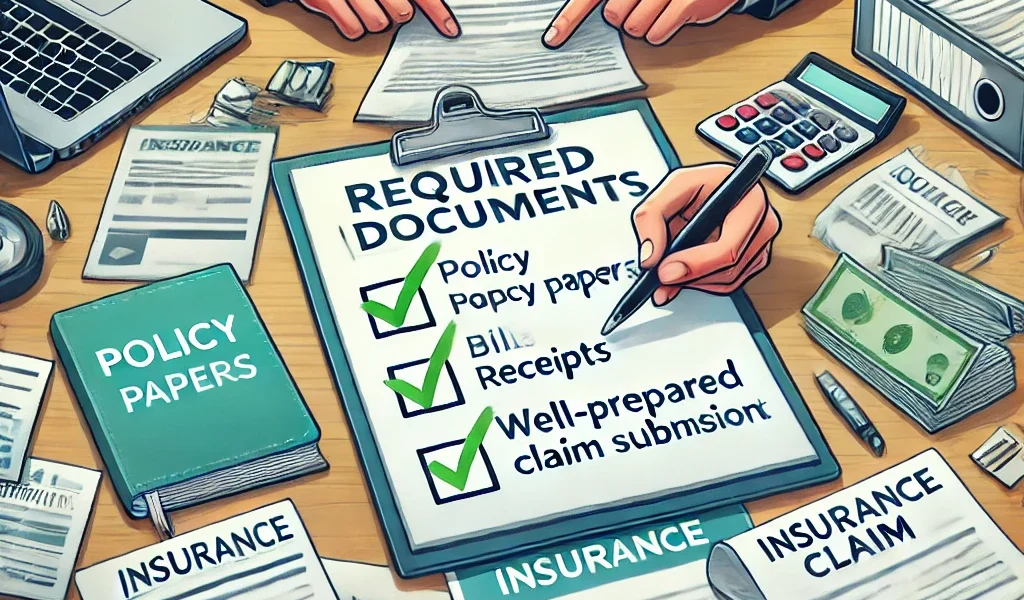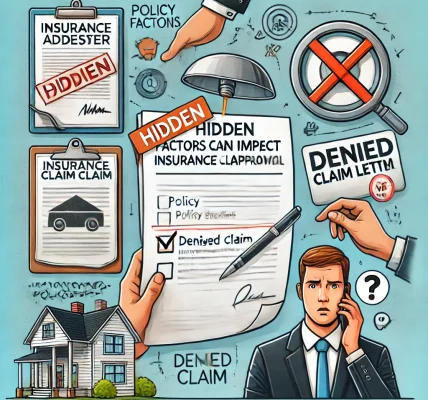Filing an insurance claim can be a daunting process, but having the right documents ready can make it much smoother and faster. Whether it’s health, auto, home, or life insurance, proper documentation plays a crucial role in ensuring your claim is processed without unnecessary delays or rejections. In this guide, we will discuss the essential documents required for different types of insurance claims and how to prepare them effectively.
Why Documentation Matters in an Insurance Claim?Insurance companies require proper documentation to verify the claim’s legitimacy and assess the extent of the loss or damage. Inadequate or incorrect documentation can lead to claim rejection or prolonged processing time. Submitting the required documents accurately and on time ensures that your claim gets settled quickly.
Common Documents Required for Insurance ClaimsWhile specific requirements vary depending on the type of insurance, some common documents are required across all claims:
Claim Form: A duly filled claim form provided by the insurer.
Policy Document: A copy of the insurance policy to verify coverage details.
Identity Proof: A government-issued ID such as a passport, driver’s license, or Aadhaar card.
Proof of Incident: Supporting documents like medical reports, police reports, or accident statements.
Receipts & Bills: Any invoices or receipts related to the claim, such as hospital bills or repair estimates.
Now, let’s break down the required documents for specific types of insurance claims.
- Health Insurance Claim DocumentsHealth insurance claims require detailed medical and financial documentation to process the reimbursement or direct settlement with hospitals.
Required Documents:Duly filled claim form
Health insurance policy copy
Hospital discharge summary
Doctor’s prescription and medical records
Original hospital bills and payment receipts
Pharmacy bills (if applicable)
Diagnostic reports (X-rays, blood tests, etc.)
Employer letter (if claiming under group health insurance)
Bank details for reimbursement
Tips to Avoid Delays:✔ Ensure all bills and reports have the hospital’s stamp and doctor’s signature.
✔ Submit original documents as required, and keep photocopies for your records. - Auto Insurance Claim DocumentsAuto insurance claims typically involve accident-related expenses, vehicle damages, or third-party liabilities.
Required Documents:Duly filled claim form
Copy of vehicle insurance policy
Driver’s license and vehicle registration certificate (RC)
FIR (if applicable, especially in case of theft or major accidents)
Repair estimates from an authorized garage
Original bills for repairs and spare parts
Photographs of vehicle damage
Witness statements (if applicable)
Tips to Avoid Delays:✔ Always report the accident to the insurer and authorities immediately.
✔ Get a repair estimate from an authorized service center. - Home Insurance Claim DocumentsHome insurance claims cover damages caused by natural disasters, theft, fire, or other unforeseen incidents.
Required Documents:Duly filled claim form
Copy of home insurance policy
Proof of ownership (property deed, rental agreement, etc.)
FIR or fire department report (if applicable)
Photographs or video evidence of damage
Repair and replacement cost estimates
Invoices or purchase receipts for lost/damaged items
Bank details for claim settlement
Tips to Avoid Delays:✔ Document the damage thoroughly with photos and videos before starting repairs.
✔ File the claim as soon as possible after the incident. - Life Insurance Claim DocumentsLife insurance claims are generally filed by the nominee in case of the policyholder’s demise.
Required Documents:Duly filled claim form
Original life insurance policy document
Death certificate of the insured
Identity and address proof of the claimant
Bank account details for claim transfer
Medical records (if applicable, for claims related to illness)
FIR/post-mortem report (in case of accidental death)
Legal heir certificate (if the nominee is not mentioned in the policy)
Tips to Avoid Delays:✔ Ensure the claim form is signed by the right beneficiaries.
✔ Submit the death certificate from an authorized government body.
How to Ensure a Smooth Claim Process?To avoid unnecessary delays and rejections, follow these best practices: - Read and Understand Your Policy✔ Know what is covered and what is excluded.
✔ Be aware of the claim filing deadlines. - Keep Digital and Physical Copies of Documents✔ Scan and store important documents online for quick access.
✔ Maintain a folder with all insurance-related paperwork. - Notify Your Insurer Promptly✔ Report incidents immediately to start the claim process.
✔ Follow up regularly on the claim’s progress. - Avoid Fraudulent Claims✔ Never submit false or exaggerated claims.
✔ Provide genuine and verified documents only.
ConclusionHaving the right documents ready is key to ensuring a smooth and hassle-free insurance claim process. Whether it’s health, auto, home, or life insurance, being prepared with accurate information and timely submissions can prevent unnecessary delays and maximize your chances of a successful claim.
Always read your policy thoroughly, maintain organized records, and communicate effectively with your insurer to streamline the claim experience. If needed, seek professional assistance to navigate complex claims and avoid pitfalls.




